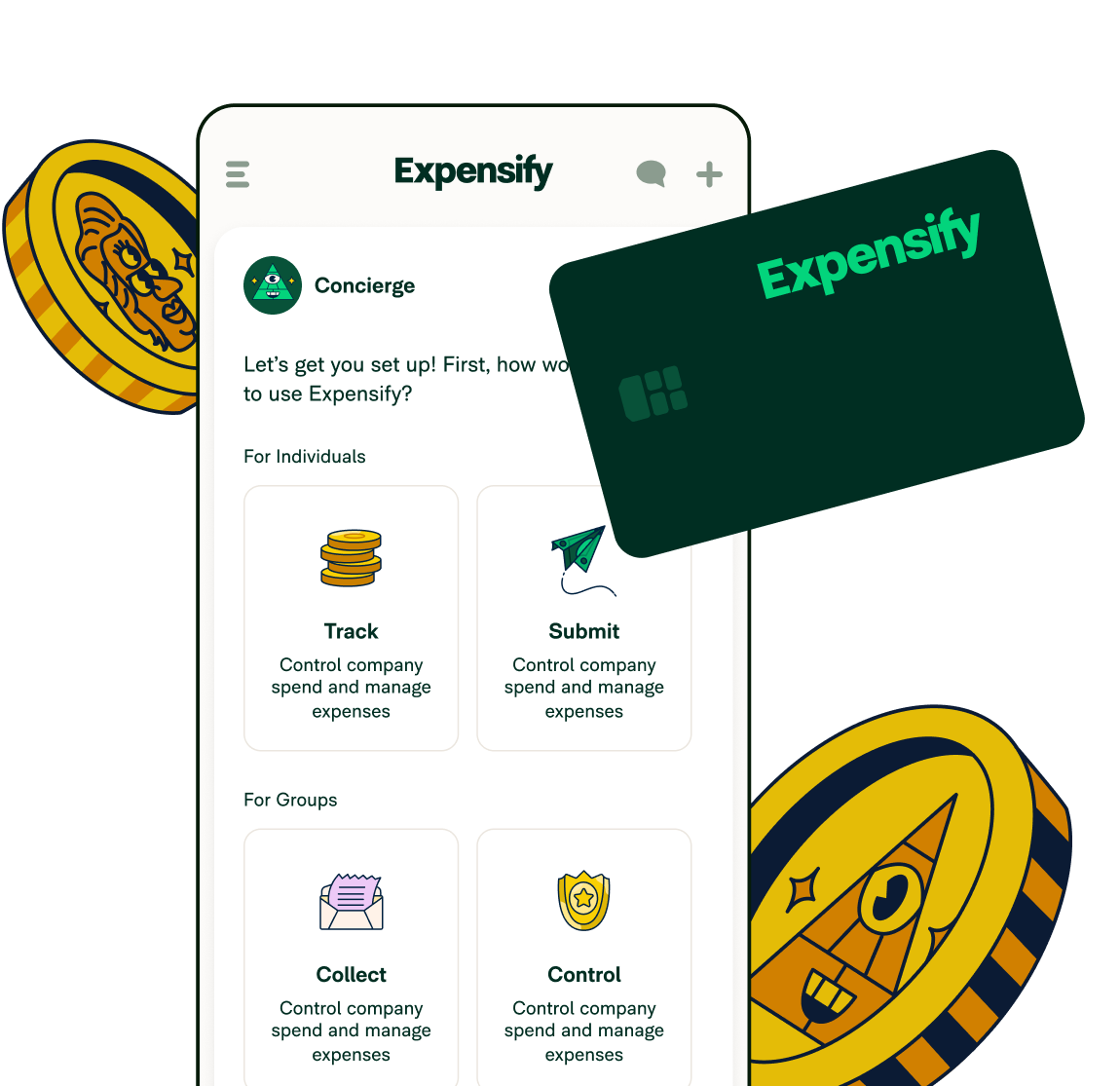Mileage reimbursement: Everything you need to know for 2024

Understanding mileage reimbursement is crucial for employees who use their personal vehicles for business and employers who need to reimburse them fairly and efficiently. It's a balancing act: employees need to know they will be adequately compensated for the additional wear and tear on their cars, while employers need to ensure they're following the mileage reimbursement rules and keeping costs under control.
In this post, we’ll cover the different ways to make this process smoother for everyone involved. We’ll also review how easy it is to automate mileage reimbursement and expense management with Expensify. Let’s dive in!
What is mileage reimbursement?
Mileage reimbursement is when an employer pays an employee to cover the costs of using their vehicle for business trips. These costs include gas, wear and tear on the vehicle, and depreciation. By reimbursing employees for these expenses, employers essentially compensate them for the additional cost of doing their jobs.
How does mileage reimbursement work?
There are two main ways for employers to reimburse employees for mileage:
Actual expense reimbursement: This method involves employees keeping track of all their gas receipts and car maintenance bills. They then submit these receipts to their employer for reimbursement. While accurate, this method can be time-consuming and cumbersome for both parties (unless they use an app like Expensify!). Employees need to collect and store receipts diligently, and employers need to verify and approve each expense meticulously.
Mileage rate reimbursement: This method uses a standard rate set by the IRS that reflects the current cost of driving. This way, it’s much easier for employees to get paid back after business trips, as they’ll only need to track the number of miles driven for business purposes. Employers then multiply the total number of business miles by the IRS rate to determine reimbursement.
What’s considered business mileage?
Here's a breakdown of what qualifies for mileage reimbursement:
Travel between your regular workplace and a temporary worksite: This could include a client's office, a training session location, or a job site.
Client meetings: If you travel to meet with clients as part of your job, the miles driven to and from those meetings qualify for reimbursement.
Errands for work purposes: Picking up supplies, delivering documents, or running any other errands specifically for work are eligible for mileage reimbursement.
Business-related travel to conferences or events: If you attend conferences or industry events for work, the miles driven to and from these events qualify for reimbursement.
However, the following are not considered business mileage and wouldn't be reimbursed:
Your daily commute to and from work: The standard commute from home to the workplace is not considered a business expense.
Personal errands: Miles driven for personal errands, like grocery shopping or picking up dry cleaning, do not qualify for reimbursement.
Lunch breaks: Stopping for lunch during your workday is considered a personal expense, not a business expense, and therefore the miles driven are not reimbursable.
What is the federal mileage reimbursement rate for 2024?
The IRS sets a standard mileage rate each year to simplify mileage reimbursement. The IRS mileage rate in 2024 is 67 cents per mile for business use. This rate reflects the average car operating cost, including gas, maintenance, and depreciation. Don't forget to update your mileage rate for 2024 to ensure your employees are being fairly reimbursed!
While the IRS mileage rate is a standard, employers are not obligated to use it. However, deviating from the standard rate can have tax implications, which we’ll discuss later.
Ways to simplify mileage reimbursement
With the right tools and processes in place, mileage reimbursement can be easy. Here are a few ways to simplify the process for both employees and employers:
Use a mileage tracking app: Manually tracking miles driven for business purposes is tedious and prone to errors. Distance tracking with Expensify automatically tracks miles driven using your phone's GPS. This eliminates the need for employees to remember to log every trip and reduces the risk of errors.
Integrate your mileage tracking app with your expense management software: Many businesses already use expense management software to track and manage business expenses. Integrating your chosen mileage tracking app with your expense management software allows employees to submit and track mileage reimbursement requests easily alongside other business expenses. This creates a centralized system for managing all business expenses, streamlining the expense reporting process.
Set a clear mileage reimbursement policy: A clear and concise mileage reimbursement policy is essential for ensuring transparency and fairness. Your policy should outline what qualifies for reimbursement, the current IRS mileage reimbursement rules, the process for submitting reimbursement requests, and the timeframe.
Are there any legal implications to mileage reimbursement?
Like any reimbursement, developing a mileage reimbursement policy involves some legal implications. Two main areas of concern are employment law and tax law.
Employment law
While there's no federal law mandating employers to reimburse employees for mileage, there is a general rule that employers must reimburse employees for any work-related expense that cuts into their minimum wage.
If your employee uses their car for business and spends more than a reasonable amount on gas and wear-and-tear, they could sue you to recover those costs. To avoid legal issues, it's important to have a clear and fair mileage reimbursement policy in place.
Tax law
Mileage reimbursement has tax implications for both employers and employees. The good news is that it is tax-deductible for employers and independent contractors. This means employers can deduct the total mileage reimbursement they pay employees from their taxable income.
Similarly, mileage reimbursement is not considered income for employees and, therefore, is nontaxable. This means that employees won't owe any additional taxes on their mileage reimbursement.
However, there are some tax considerations to keep in mind:
Using the IRS mileage rate: If an employer opts to use the IRS standard mileage rate for reimbursement, it automatically simplifies tax reporting for employers and employees.
Using another rate: If an employer chooses a rate different from the approved federal reimbursement for mileage, things can get more complex. In this case, employers can still deduct their employee mileage reimbursement, but employees may need to report the difference between the actual cost per mile and the reimbursement amount as income on their tax return.
Whew, that was a lot of info. If you still need a hand with taxes, check out these small business tax tips as a next step.
Account for every mile with Expensify
Expensify makes mileage reimbursement easier and more effective for both employers and employees. Our user-friendly platform offers the following features:
Automatic distance tracking: Expensify automatically tracks miles driven for business purposes using your phone's GPS. This eliminates the need for manual entry and reduces the risk of errors.
Integrated expense management: Employees can submit mileage reimbursement requests alongside other business expenses in Expensify, creating a centralized system for managing all business expenses.
Streamlined reimbursement: Expensify simplifies the entire reimbursement process, allowing employees to submit requests quickly and easily. Employers can then review and approve requests in a few clicks.
Detailed reporting: The app provides detailed reports on mileage reimbursement, allowing employers to track spending and ensure compliance with IRS regulations.
Stop wasting time with manual entries and spreadsheets! Let Expensify take care of your mileage reimbursement needs so you can focus on what matters most – running your business.








